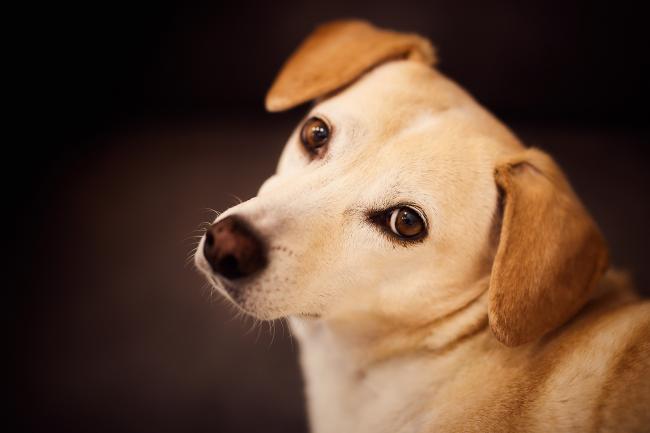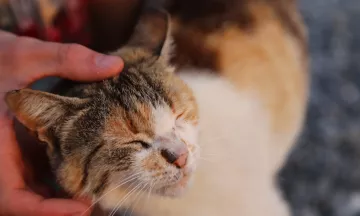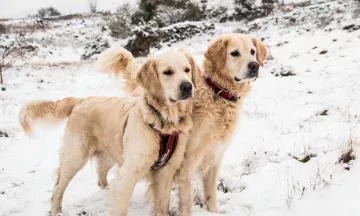Many dog owners can recognise jealous behaviour in their dog. For example, dogs might show jealousy when a new baby, pet or partner joins the household. But even without the arrival of a new family member, a dog can display jealous behaviour for reasons that are tricky to determine. They may demand excessive attention from their owner or even show aggressive behaviour towards other dogs or people. What does this jealous behaviour mean, and what can you do about it?
What is jealous behaviour?
Research has shown that dogs can exhibit about the same jealous behaviour as human babies. A little jealousy can be funny or cute, but it can also be problematic. Examples of this behaviour in dogs might include being overly affectionate, paying intense attention, growling and aggressive behaviour towards other people and dogs.
Why is my dog jealous?
Dogs just looove to please their owner. You really are your dog's best friend who they depend on for basic life needs, such as safety and security. If this safe situation is threatened because a new person or animal arrives on the scene, your dog can become jealous. Whenever something changes in your household's daily routine, a dog can lose their sense of stability - for example, if you start working longer hours, if there are personal and/or relationship problems or if you just have less time for your dog because you're juggling many other commitments.

Don't reward jealous dogs
Jealous behaviour should never be rewarded. Does your dog bark, whine, beg or growl when confronted with a jealousy-provoking situation? Then simply remove your dog from the situation (such as to a quiet room or your dog's crate, if you use one) and give a small reward. The very moment your dog shows jealous behaviour, don't punish your dog but also don't enable this behaviour: remember, a pat, laughter at your dog's antics or even showing annoyance or anger means: attention! This encourages and reinforces the negative behaviour, which will make it harder to change in the long-run.
Safety is always the top priority: never allow a jealous dog anywhere near children, and only introduce them to other pets under strict supervision. Always talk positively about the person or animal on which your dog is directing their jealousy. Make sure your dog sees a positive association with this 'intruder': your dog will soon learn that there is no threat to their safety and that the negative behaviour isn't necessary.
Working on self-confidence
Dogs that are happy and well-balanced are less likely to show jealous behaviour. It is very complicated to pinpoint exactly why your dog displays sudden jealousy. But we do know that dogs who are insecure, anxious, traumatized or simply shy can experience jealousy more easily. The moment the 'safe' bond with their owner is at risk, a dog will become insecure and will do everything possible to regain that craved-for sense of security.
Take a moment to think about this: is there a reason why your dog might feel insecure or confused? Has something changed in the household recently? Are there times during the day when there is less attention paid to your dog because of the arrival of a new baby, a house renovation or work? A big change in daily life can have a huge impact on your dog, so it's important to reinforce your dog's sense of security and balance. After all, a self-confident dog is a happy dog!
Here's how to make sure your pooch is as happy and self-assured as possible:
- Play games: reward your dog for every little achievement during playtime such as retrieving, 'sitting', 'coming here' or simply having fun together!
- Support your dog in difficult situations, encourage your dog positcively
- Give your dog control and freedom of choice: never urge your dog into difficult or threatening situations. Don't force them to interact with other dogs and people - let your dog decide on their own terms.
- Let them sniff: let your dog discover new places, people and animals at their own pace. With that amazing nose, your dog gathers information and knowledge which gives a sense of control and calmness
- Help your doggo relax: for example, with a relaxing massage or Bach flower therapy.
Mental and physical challenges
Happy, satisfied dogs have less need to be jealous: they are provided for and are happy and engaged with the world around them. Therefore make sure your dog gets enough affection (hugs, love), exercise and mental and physical challenges.
Do you have less time for your dog because of work or other life events? Consider booking doggy daycare for your dog: this is personalised dog care with a pet sitter in their home space during the day.





